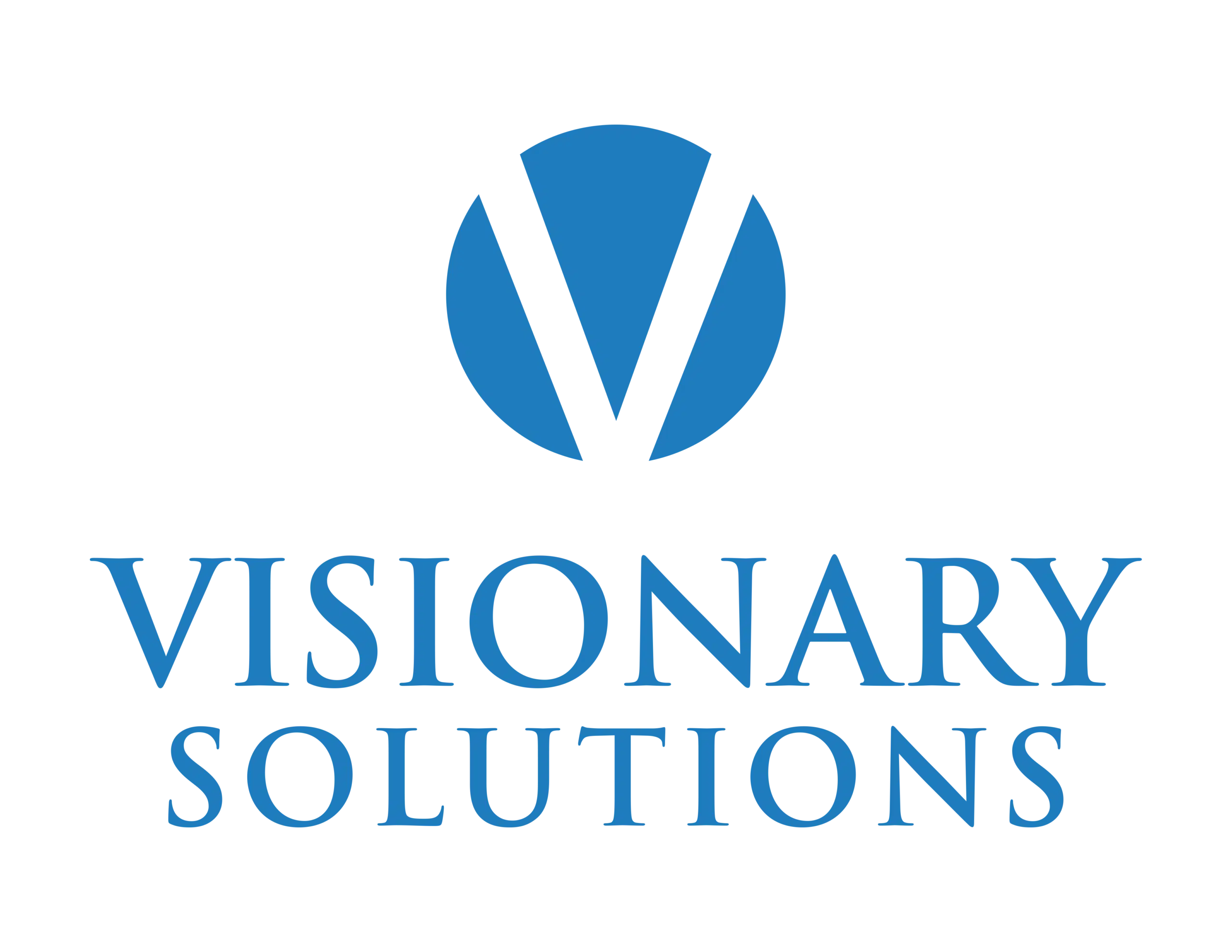In the dynamic landscape of the legal industry, the role of an intake specialist is paramount in modern law practices.
They serve as the initial point of contact, guiding potential clients from inquiry to case engagement. Their expertise, efficiency, and empathetic approach are instrumental in building enduring client-law firm relationships.
Their importance becomes evident when we look at successful law firms. Industry leaders emphasize that these are not just necessary; they are strategic assets.
Their ability to engage potential clients, empathize with their needs, and gather essential information goes beyond mere tasks – it’s about establishing trust and setting the stage for a successful legal journey.
In this guide, we’ll explore the pivotal role of legal intake specialists through real-world examples, showcasing how their proficiency can transform inquiries into opportunities and potential clients into long-term partners.
We will delve into the strategies, tools, and personal touch that make them invaluable in today’s legal landscape.
What is a Legal Intake Specialist?
In this realm, an intake definition law helps clarify and initiate the necessary steps for legal assistance.
A Legal Intake Specialist, often called a legal intake coordinator or client intake specialist, is a crucial team member within a law firm or legal practice.
They play a pivotal role in client servicing, ensuring that prospective clients have a smooth and informative experience when seeking assistance.
Roles and Responsibilities
They have multifaceted roles and responsibilities that extend beyond merely answering phone calls or responding to inquiries.
They serve as the first point of contact for individuals seeking legal help, and their responsibilities are both comprehensive and sensitive.
- Initial Contact: When someone contacts a law firm looking for legal assistance, it’s often during a time of crisis or uncertainty.
Legal Intake Specialists must offer a compassionate and understanding ear, listening carefully to the client’s needs and concerns. This initial conversation sets the tone for the client’s experience. - Information Gathering: A critical aspect of this role is to gather essential information from the prospective client. This includes details about the legal issue, personal information, and other relevant data.
This is critical for attorneys to evaluate the case effectively. - Setting Appointments: In many cases, the Legal Intake Specialist schedules initial appointments between the client and the attorney.
They must coordinate these appointments efficiently, considering the urgency and nature of the client’s situation. - Providing Information: These Specialists are expected to explain the legal intake process and the services the firm offers.
They address frequently asked questions and clarify any doubts that prospective clients may have. This role requires a strong understanding of legal terminology and processes.
The role of a Legal Intake Specialist is pivotal because it represents the first impression of the law firm to prospective clients.
They have the unique opportunity to reassure, educate, and guide individuals during challenging times. Their compassionate and informative approach can significantly impact a client’s decision to proceed with legal services.
In real-life job scenarios, a professional may find themselves speaking to someone who has just been involved in a personal injury accident, and they are seeking a specialized attorney.
The Specialist’s role is to gather all the necessary details about the accident, assess its potential for a case, and schedule a consultation with a lawyer.
This often involves providing emotional support to the client during a difficult period.
As for testimonies, clients who have experienced the professionalism and empathy of a Legal Intake Specialist are often satisfied.
They appreciate the kindness, patience, and efficiency with which their cases are handled, even from the very first phone call.
These emphasize the Specialist’s role in making clients feel heard, supported, and confident in the legal process.
Legal Client Intake Process: A Step-by-Step Guide
Efficient client intake is the foundation of a successful legal practice.
It ensures that the firm identifies potential clients, understands their legal needs, and establishes a smooth process for serving them.
Here’s a step-by-step guide to mastering the legal client intake process:
Initial Client Communication: Making a Positive First Impression
Communication is the first point of contact, and it should be professional, empathetic, and informative.
Here’s a sample script for an initial phone or email communication:
Phone Script
“Good [Morning/Afternoon], thank you for calling [Your Firm’s Name]. My name is [Your Name], and I’m here to assist you. How can we help you today? Could you briefly describe your legal needs or the reason for your call?”
Email Template
Subject: [Your Firm’s Name] – Initial Inquiry
Dear [Client’s Name],
Thank you for reaching out to [Your Firm’s Name].
We appreciate your interest in our legal services. To better assist you, could you please provide some initial information regarding your legal needs? This will help us direct your inquiry to the right team.
[Provide space for the client to describe their needs]
We will get back to you promptly with information on how we can assist you.
Best regards, [Your Name] [Your Firm’s Name] [Contact Information]
Feel free to customize this script and email template to suit your firm’s specific requirements and client interactions.
Information Gathering
The intake specialist should collect essential information about the potential client’s legal issue.
- Here’s a brief outline of the types of forms you can provide:
Client Information Form- Basic contact information: Name, address, phone number, email, and preferred contact method.
- Details about the legal issue, including a brief description.
Legal Needs Assessment Questionnaire - Comprehensive questions related to the client’s specific legal needs.
- Specific details about the issue, any involved parties, and the desired outcome.
Confidentiality Agreement - A formal agreement outlining the firm’s commitment to maintaining client confidentiality and attorney-client privilege.
Client Expectations Agreement - Outlines what clients can expect in terms of services, timelines, and costs.
Needs Assessment
Determine the client’s immediate and long-term legal needs.
- Provide a workflow for assessing and categorizing client needs effectively.
Matching Clients to the Right Attorney
Based on the client’s needs and the firm’s expertise, assign the case to the most suitable attorney.
- Here, you can make the best of legal practice management software in matching clients to the right attorney efficiently.
Setting Expectations
Clearly outline what clients can expect in terms of services, timelines, and costs.
- Make use of advice from legal experts on how to set and manage client expectations effectively.
Documentation and Compliance
Maintaining compliance during the intake process is critical in the legal industry. Best practices include:
- Documentation: Ensure all client information and agreements are accurately documented and securely stored.
- Legal Ethics Training: Provide ongoing training to intake specialists on legal ethics, confidentiality, and client-attorney privilege.
- Audit Procedures: Implement periodic audits to review compliance with legal and ethical standards, making adjustments as needed.
- Confidentiality Protocols: Establish strict confidentiality protocols to safeguard sensitive client information at all stages of intake.
This process, while straightforward in theory, can be riddled with challenges in practice.
It’s essential to understand the best practices and common pitfalls to master this crucial component of legal service delivery.
Best Practices
- Consistency: Maintain a standardized intake procedure to ensure nothing falls through the cracks.
- Training: Continuously train your intake specialists to keep them updated on legal services, communication techniques, and technology.
- Feedback Mechanisms: Create a system for intake specialists to provide feedback on the intake process to identify areas of improvement.
Common Pitfalls
- Miscommunication: Failure to convey essential information or understand the client’s needs can lead to dissatisfaction.
- Inefficiency: A disorganized intake process can result in delays, missed opportunities, and client frustration.
- Non-Compliance: Violating legal or ethical standards during intake can have severe legal and reputational consequences.
7 Tips for Improving Legal Client Intake
The process of legal client intake is a critical step in any law firm’s operations.
It sets the tone for the client-lawyer relationship and can significantly impact the success of a case.
To help you master it, here are seven actionable tips that we recommend:
1. Develop a Solid Qualification Process
When a potential client contacts your firm, it’s crucial to have a solid qualification process in place.
This should help determine whether the case falls within your firm’s practice areas and whether the client’s needs align with your expertise.
For instance, a personal injury law firm may use a series of questions to assess the severity of the injury, the circumstances, and the potential for a successful case.
This ensures that the firm invests its resources wisely and maximizes the chances of a successful outcome.
2. Ask All the Necessary Questions
Comprehensive information gathering is essential for effective client intake.
Ensure your specialists ask all the necessary questions to understand the client’s situation fully.
For example, in immigration law, a well-crafted questionnaire may help uncover crucial details about the client’s background, immigration history, and potential eligibility for specific visas.
This approach can help lawyers provide more accurate advice and better serve the client’s needs.
3. Hire Bilingual Legal Intake Specialists
In a diverse and multicultural society, hiring bilingual legal intake service specialists can be a game-changer.
Suppose a client feels more comfortable expressing their situation in their native language. In that case, it can significantly improve communication and the overall client experience.
A case study from a family law firm found that offering intake services in multiple languages resulted in more clients seeking assistance, enhancing the firm’s reputation within multicultural communities.
4. Be Available Around the Clock
Legal issues don’t adhere to a 9-to-5 schedule, and clients often need immediate help.
Offering 24/7 availability, through live chat, dedicated hotlines, or online forms, demonstrates your commitment to assisting clients when they need it most.
A case study from a criminal defense firm revealed that providing a 24/7 hotline for legal emergencies led to an increase in cases handled and significantly improved client satisfaction.
5. Build Rapport with the Person Who Calls
Establishing a personal connection is vital during client intake. Clients need to feel heard and understood.
A real estate law firm, for example, might use techniques that allow specialists to relate to clients’ property-related concerns.
A strong rapport not only increases trust but can also lead to referrals and repeat business.
6. Hire Someone Who Responds Quickly
Timeliness is critical in client intake.
Whether it’s responding to an initial inquiry or providing updates on the case’s progress, swift responses instill confidence in your firm.
Clients who receive faster responses during the intake process are more likely to choose the firm, even if the matter is not urgent.
7. Make Your Staff Empathetic
Empathy goes a long way in legal intake. Clients are often in vulnerable or distressing situations.
Ensuring your staff can convey empathy and understanding can significantly impact their experience.
A case study from a family law firm demonstrated that those who felt their emotional needs were addressed alongside their legal concerns reported higher satisfaction levels and were more likely to refer others to the firm.
What Areas of the Legal Client Intake Process Do Attorneys Need to Be Careful About?
The legal client intake process is a critical initial step in any legal practice, and attorneys must exercise due diligence and care in several areas to ensure compliance with many standards.
Here, we delve into the key considerations that professionals must be cautious about.
1. Legal and Ethical Considerations
Attorneys have a paramount responsibility to uphold legal and ethical standards when conducting client intake.
This means abiding by the rules of professional conduct, maintaining client confidentiality, and ensuring the attorney-client privilege is preserved.
The American Bar Association’s Model Rules of Professional Conduct provides guidelines for ethical behavior in the legal profession, and violations of these rules can result in disciplinary actions.
It is crucial for attorneys to keep in mind that they are not only responsible for their clients but are also officers of the court.
2. Client Confidentiality
Client confidentiality is a cornerstone of the attorney-client relationship.
They are legally obligated to protect their client’s sensitive information and communications. Violating this confidentiality could lead to a breach of trust and severe legal consequences.
Attorneys should be cautious when collecting and storing data, ensuring that only authorized individuals have access to it.
It is also essential to secure physical and digital files containing confidential information.
Breaches can lead to legal malpractice claims and professional damage.
3. Data Security
In the digital age, data security is a crucial aspect of this process.
Legal intake professionals handle a vast amount of electronic data, and protecting this information is imperative.
Cyberattacks, data breaches, and hacking incidents have become increasingly common, making it essential for lawyers to invest in robust data security measures.
This includes encrypting client data, implementing secure access controls, and having a well-defined incident response plan in case of a security breach.
4. Expert Opinions and Statutory Guidelines
Seeking expert opinions and adhering to statutory guidelines is a prudent approach for attorneys.
Legal scholars and experts can provide valuable insights into the intricacies of client intake, ensuring that best practices and the most current legal and ethical standards are followed.
Additionally, there may be state-specific statutory guidelines and regulations governing client intake and data security.
Familiarizing oneself with these requirements is crucial to avoid legal complications.
For instance, the Health Insurance Portability and Accountability Act (HIPAA) in the healthcare sector has stringent regulations concerning the confidentiality and security of patient information.
Attorneys handling healthcare-related cases must be aware of these additional obligations.
Comprehensive Legal Intake Training for Excellence
The cornerstone of any successful law practice is the ability to provide excellent service to clients. To achieve this, training is key.
Law firm client intake training equips professionals with the skills and knowledge required to ensure that the process is thorough, accurate, and compliant with legal standards.
It begins with understanding the significance of the initial client interaction, where the foundation for a successful attorney-client relationship is laid.
Professionals learn to ask the right questions, empathetically engage with them, and discern critical details.
Its impact on service delivery is profound.
Well-trained staff can efficiently capture essential case information, helping lawyers to evaluate the merits of a case swiftly.
Moreover, legal intake training in ethics ensures that all client interactions adhere to the highest ethical standards. This not only maintains the trust and credibility of the law firm but also safeguards against potential malpractice issues.
Courses, Certifications, and Skills Enhancement for Aspiring Professionals
Formal courses provided by universities and professional organizations offer a structured curriculum covering intake legal procedures, client communication, and ethical considerations.
These are often taught by experienced professionals and can provide a solid foundation for beginners.
Certifications are another valuable resource. They validate a professional’s expertise in the field and are recognized within the legal industry.
Prominent organizations offer certification programs, and obtaining one can significantly boost career prospects.
In addition to formal training, continuous learning is vital.
Professionals can attend workshops, seminars, and conferences to stay updated with industry trends and best practices.
This not only broadens their knowledge but also helps them refine their interpersonal skills, critical for effective client interactions.
Revolutionizing Services with Automated Legal Intake
Automation is revolutionizing the way law firms manage their legal intake process.
Systems are designed to streamline and enhance the efficiency of capturing client information and case details. These use technology to facilitate the initial stages of client interaction, freeing up valuable time and resources for legal professionals.
Their benefits are multi-faceted:
Firstly, they significantly reduce the margin of error in data entry. Automated systems ensure consistency in the intake process by guiding users through a standardized set of questions.
This accuracy not only saves time but also enhances the quality of the data collected.
Furthermore, they can be available 24/7, allowing clients to provide essential information at their convenience.
This accessibility improves the client experience by eliminating time constraints, which can be particularly beneficial when dealing with urgent legal matters.
Statistics, Trends, and Predictions
Over the last decade, the legal industry has seen a substantial increase in the adoption of automated legal intake systems.
Law firms are increasingly recognizing their potential in improving efficiency, reducing costs, and enhancing the client experience.
Trends indicate that it is expanding beyond basic data collection.
Advanced systems incorporate artificial intelligence and machine learning, allowing for more sophisticated interactions with clients.
These systems can assess case merits, categorize incoming inquiries, and even recommend suitable legal services based on the client’s input.
Predictions for the future of legal intake automation suggest further growth and refinement. As technology continues to evolve, automated systems will become more adept at handling complex legal inquiries.
They will be integrated with case management software, enhancing the seamless transition of data into the legal workflow.
How Does Legal Technology Improve the Client Intake Process for Law Firms?
Innovative technologies like Artificial Intelligence (AI) and machine learning have revolutionized this critical initial stage of client engagement.
These technologies bring efficiency, accuracy, and enhanced client experiences to law firms.
AI-driven chatbots, for instance, have become an integral part of this process.
These virtual assistants can engage with potential clients 24/7, asking relevant questions, and providing initial information.
This not only ensures that potential clients receive immediate responses but also streamlines the intake process by collecting essential information efficiently.
For example, when a client visits a law firm’s website, an AI-powered chatbot can guide them through a series of questions to gather preliminary details about their case, helping the law firm understand the client’s needs before human interaction occurs.
Machine learning algorithms have also found a home in the client intake process. They can predict which cases are more likely to succeed based on historical data, which can help law firms prioritize cases, allocate resources effectively, and provide more accurate guidance to potential clients.
Moreover, electronic document management systems and cloud-based solutions ensure that all client data remains secure and accessible from anywhere.
Legal technology empowers law firms to manage client information, documents, and case progress efficiently, ensuring clients receive a streamlined and responsive experience.
The Backbone of Legal Services: Legal Intake Call Center
The legal intake call center plays a pivotal role in law firm operations, acting as the frontline interface between potential clients and the firm.
An efficient and well-structured call center is crucial for managing client inquiries, screening cases, and providing essential information to potential clients.
Their operational framework typically involves a team of skilled agents who are trained to handle legal inquiries. They engage with potential clients, gather initial case details, and assess the viability of their claims. They ensure that the law firm’s resources are allocated to cases that align with the firm’s expertise and capacity.
This initial step significantly enhances the firm’s ability to focus on cases they can effectively handle, and that’s without hiring an in-house team where you should pay a legal intake specialist salary.
Strategies to optimize service delivery and client interaction include continuous training for call center agents to ensure they have the legal knowledge and customer service skills needed to provide a positive client experience.
Additionally, call center technology, such as Customer Relationship Management (CRM) systems, can help agents efficiently manage client information and track the progress of inquiries and cases.
Visionary solutions within the legal intake call center involve integrating AI-driven tools like chatbots and natural language processing (NLP) algorithms.
These tools can assist call center agents by providing immediate responses to frequently asked questions and helping with data collection during calls. This not only accelerates the intake process but also ensures consistency in client interactions.
Furthermore, as a forward-thinking service provider, we incorporate advanced data analytics to track key performance indicators, assess conversion rates, and identify areas for improvement in the intake process.
This way, law firms can refine their client intake strategies and enhance their overall service delivery.
Conclusion
In mastering legal intake, several key takeaways emerge from this comprehensive guide.
The client intake process is undergoing a profound transformation, driven by cutting-edge technologies and client-centric strategies.
Legal technology, such as AI and machine learning, is revolutionizing how law firms engage with potential clients, making the process more efficient, data-driven, and client-focused.
These innovations enable law firms to streamline operations, set realistic client expectations, and enhance their overall service delivery.
A call center serves as the frontline interface between clients and law firms. Optimizing this operational framework is essential for effective screening and service delivery. It should embrace training, technology, and solutions to ensure a positive client experience and efficient case assessment.
Looking ahead, the landscape will continue to evolve. We can anticipate further integration of AI and automation, leading to even more efficient and data-driven intake processes.
Client expectations will rise as technology enables faster responses and more personalized interactions.
The legal industry must adapt to meet these evolving expectations, remaining at the forefront of innovation and client-centric strategies.




